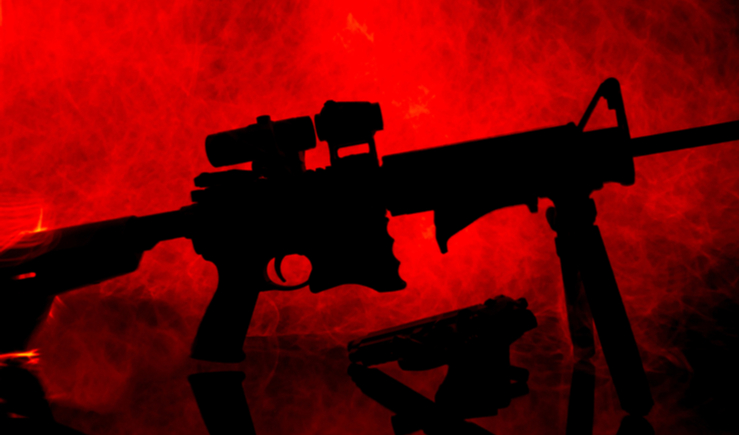
A Goebbels Prize for Propaganda
In a recent meeting at the UN, France and Saudi Arabia co-chaired a “High-Level International Conference on the Two-State Solution,” which included a 42-point peace plan. Israel and the US each boycotted the conference, which featured demagogic claims of “genocide” by representatives of Iran and Cuba. Other co-signers include Egypt, Qatar, Jordan, Turkey, and the League of Arab States, as well as the European Union, Britain, Ireland, Canada, Mexico, Indonesia, Japan, and Brazil. According to Dan McLaughlin in NRO, the declaration reportedly has the backing of the Palestinian Authority.
The broader context is a renewed push to pressure Israel with threats of international recognition of a Palestinian state and international acceptance of unsubstantiated claims by Hamas of an Israel-caused famine in territory under the governance of Hamas. French President Emmanuel Macron recently called on “both sides” to release their hostages, as if Israel holds hostages.
Toward the end of July, the NYT published on its front page a shocking photo of a frail, bordering on skeletal, child. The child’s mother upheld that the child had been born healthy but now was suffering from malnutrition.
That Muhammad Zakaria al-Mutawaq was portrayed as a victim of a famine induced by the Israeli government’s restriction of food distribution in Gaza is not the shocking part.
We now know how misleading the NYT photo was, as The WSJ’s editor-at-large, Gerard Baker, explains.
The child wasn’t a previously healthy victim of Israeli starvation. He was born with cerebral palsy, which was primarily responsible for his debilitated state.
The Times clarified this in an editor’s note a few days later, though it was likely seen by a fraction of those who saw the original story.
Mr. Baker continues by discussing a 2nd photo, this one not at all misleading. The photo is of Evyatar David, 24, terrified and helpless, peering out of the darkness of a Gaza tunnel, which, Mr. Baker writes, is reminiscent of an inmate of Bergen-Belsen.
Especially interesting is that both images are part of the campaign against Israel. As Mr. Baker writes, it doesn’t get much better for Hamas than a photo of a starving Jew, unless it’s a starving child.
Hamas Controls Gaza Strip
Israel accuses Hamas of engineering a narrative of starvation by looting aid trucks and disrupting the distribution of aid to Gazans. Israel accuses the United Nations and other humanitarian organizations of failing to collect hundreds of truckloads of aid that have piled up on the Gaza side of the border crossings.
The former horrifies a credulous world, so it puts international pressure on the Israeli government to end the combat. The latter taunts Israeli hostage families so they put similar pressure on the government. If there were a Goebbels prize for propaganda, Hamas would win it every year. It should be a source of shame that so much of the West’s media is gulled or persuaded into playing the Leni Riefenstahl (sympathetic Nazi filmmaker) part in the campaign.
Responsible for Humanitarian Crisis
Mr. Baker also notes the deafening chorus of condemnation Israel receives for its war effort. It is so far from the underlying moral truth of this war it is sickening, according to Gerard Baker.
Israel … wants lasting peace and security. Israel’s enemies want a state of permanent and existential war and suffering for the innocents.
Mr. Baker is not saying that Benjamin Netanyahu is blameless in his prosecution of this war. Baker believes that Israel is right, however, in its effort to extirpate Hamas.
Even though Gerard Baker thinks that Israel has mostly conducted its war with the correct balance of lethal force for combatants and protection for innocents, it is easy to believe that Israel is at least partially responsible for the current humanitarian crisis.
Evidence of Severe Shortages
Mistakes, errors of judgement (perhaps) have been made, and those need fixing. In the past week, Israel has reliably documented the scale of that crisis, including detailed reporting on the surging price of flour and other staples, evidence of severe shortages.
In Gerard Baker’s podcast, “Free Expression”, he talksl with Nadav Eyal, a commentator for Yediot Ahronoth (a daily mass-market newspaper) and Ynet, to discuss the Israeli government’s two critical mistakes that prompted the crisis: (1) cutting off the food supply after the cease-fire in March in an effort to pressure Hamas to negotiate and believing there was sufficient food already available. Then, in May (2) Israel tried to obviate Hamas’s control of the food supply by taking over the distribution of that food under the Gaza Humanitarian Fund, with inept results.
Hamas has been seizing much of this aid with two goals in mind. Its first goal is to make the humanitarian situation worse. Its second goal is to bring … international pressure … for its own purposes. Mr. Baker asks, to what extent is that accusation true?
We can all agree that Hamas is certainly responsible overall for the humanitarian condition in Gaza because of what it did on October 7th. But in the current circumstances, the claim by many that there was food would’ve been available …
It was Hamas’s seizing of the food that created the problem. Is there a question of truth? Has Hamas taken control of the UN aid to the Gaza Strip?
What may be difficult for many to understand is that different aid groups are not part of the UN. Hamas controls all the aid within the Palestinian society in the Gaza Strip. Hamas officials are … not starving. They are not hungry. Hamas knows how to use aid in certain areas.
If you won’t work with them (Hamas officials), what then? The people in Hamas in those enclaves left in the Gaza Strip are the ones with the guns. One example? Hard as it may be to understand, in famine or about starvation in war conditions not everything looks and feels like Ethiopia during the 1980s.
Nadav Eyal, at this point, explains to Mr. Baker:
Right now, (Israel is) just tackling … the crisis. And to some extent, this crisis is of course related to two major mistakes that Israel made. And I’m using the term mistakes because I’m not going to delve right now into some moral judgments.
All about Demand
Tactically speaking, these were big mistakes for the Israelis, explains Nadav Eyal. The first mistake was, of course, that Israel, in a formal cabinet decision, stopped all food and aid supplies to the Gaza Strip between 2 March and 19 May.
This was the government, to some extent, surrendering to demands made by Smotrich and Ben-Gvir and the far-right ministers.
… the idea there was to try and pressure Hamas to get to another deal, another ceasefire deal. And that as of itself, of course, created in the Gaza Strip a lot of demand. Now granted during the ceasefire January, March, huge amounts of food and aid got in the Gaza Strip and Israel wasn’t limiting it at all. … Israel said since the beginning of the war, “We’re not limiting food and aid to the Gaza Strip.”.
The truth is that the Israeli position all along was not to limit aid to the Gaza Strip.
“We’re not using this as leverage. “At least formally that was the position of the Israelis. Suddenly on March 2nd, it became the formal position of the government that they’re not allowing any aid to the Gaza Strip. And they also assessed that because of the huge amounts of aid and food that came in during the second ceasefire, there’s no need to that for at least four to six months. That was a mistake on many levels.
… it became clear as … a result of that, food insecurity was created overnight. So even if you had food, you wanted to hoard as much food as you could, and the people who hoarded the food were both Hamas officials and of course traders in the Gaza Strip that could profit from it, profiteers, and all the rest, Gerry. So that led in about 70 days to a full-blown crisis that Israel reacted to on May 19th (by) allowing aid to go into Gaza again and having no deal.
But by this time, you already had a crisis of demand, and this is what we’re seeing in these terrible images of people running to the aid distribution centers or getting on trucks and looting everything. It’s all about demand. Right?”
Truth Lies in Nuances
When or if a deal is made, which Nadav Eyal believes will happen, the hostages will be released.
The main thing happening now is not the press being all over Israel. Instead, it’s what the media is describing as war crimes or crimes against humanity, argues Eyal.
Israelis are used to that. Since October 7th … since October 8th. What really bothers the Israeli public right now is the feeling that the war in Gaza isn’t going anywhere, and that soldiers who are there on mandatory service or reserve service, meaning they can be your kids, they could be your neighbors or your family, that they’re dying.
Hamas has already said that it is not ready to control (formally) the Gaza Strip. Israel is demanding that Hamas disarm.
Nadav Eyal thinks that it’s more of a change of mode for both the mediators and, frankly, for Israel to go for a full deal right now. He says it’s feasible as well as relevant.
Whether or not that’s going to happen, I think it’s very much resting on domestic politics, both in Israel in terms of Netanyahu’s coalition and the election day, and both in the region and of course within the Palestinian society and between the factions in Hamas that are right now arguing with each other as to the ceasefire.
And that, concludes Nadav Eyal to Gerard Baker, is one of the reasons we don’t have a ceasefire.
If you’re willing to fight for Main Street America, click here to sign up for the Richardcyoung.com free weekly email.







